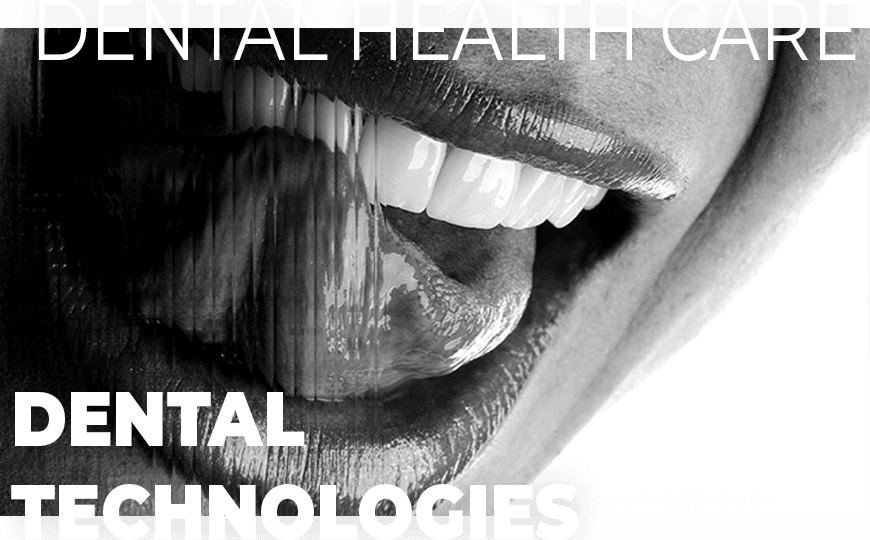
Blogs
Tooth Decay Treatment – Can You Really Heal It Without a Dentist?

Tooth decay is one of the most common oral health problems affecting people of all ages. It begins quietly, often without noticeable symptoms, and if left untreated, can lead to severe pain, infection, and even tooth loss. But one question continues to arise among patients worldwide: Can tooth decay really heal without visiting a dentist?
The short answer is no tooth decay does not heal on its own once it has progressed beyond the early stages. While some minor enamel demineralization may be reversed through fluoride and improved oral hygiene, an actual cavity requires professional intervention. Relying solely on home remedies or hoping the problem will go away may result in more complex and costly dental procedures down the road. At Dent Helen Clinic, located in the heart of Antalya and renowned for its expertise in dental tourism, we emphasize early detection and proactive care. Our team is committed to guiding international patients through personalized tooth decay treatment plans that not only eliminate the decay but also restore full function and aesthetics.
In this article, we’ll explore how to stop tooth decay naturally, recognize early signs, review effective home remedies, and understand the best professional treatment options so you can make an informed decision before it’s too late.
How to Stop Tooth Decay Naturally Before It Gets Worse
In its earliest stage, tooth decay begins with the loss of minerals from the enamel—a process known as demineralization. At this point, the damage is still reversible with the right habits and lifestyle changes. But once decay progresses to form a cavity, only professional intervention can halt its spread. So, how can you stop tooth decay naturally before it turns into a serious issue?
The first and most effective method is maintaining excellent oral hygiene. Brushing your teeth twice a day with fluoride toothpaste, flossing daily, and using an alcohol free antibacterial mouthwash can dramatically reduce plaque buildup. In addition, fluoride helps to remineralize weakened enamel, making it more resistant to acid attacks caused by bacteria.
Diet also plays a critical role. Limiting sugary snacks, carbonated drinks, and starchy foods can reduce the acidity in your mouth and cut off the food supply for harmful bacteria. Instead, opt for tooth friendly choices like water, green tea, cheese, leafy greens, and crunchy vegetables that help stimulate saliva production, your mouth’s natural defense mechanism.
At Dent Helen Clinic, we encourage preventive care as the first line of defense against decay. If you’re noticing increased sensitivity or white spots on your teeth, these could be early signs of enamel erosion. Our dental experts provide preventive consultations and fluoride applications to help you preserve your natural smile without waiting for a cavity to form.
Taking action early with natural methods can make a real difference, but remember: these steps are most effective only at the very beginning of the decay process. Regular dental checkups ensure you’re on the right track and prevent minor issues from becoming major problems.
Early Signs of Tooth Decay You Should Never Ignore
Tooth decay often develops silently—but your body gives warning signs if you know what to look for. Recognizing the early symptoms of tooth decay can mean the difference between a simple, non invasive treatment and a complex, costly dental procedure later on.
One of the first signs is increased sensitivity to hot, cold, or sweet foods and drinks. If you experience a sudden twinge when sipping something cold or biting into something sugary, your enamel may already be compromised. Another common indicator is the appearance of white or chalky spots on the teeth, which suggest demineralization is underway.
As decay progresses, you may notice visible discoloration, such as brown or black spots on the tooth surface. Persistent bad breath or a bad taste in your mouth may also signal bacterial buildup due to untreated cavities. In more advanced stages, mild discomfort can turn into sharp pain while chewing or applying pressure, which typically means the decay has reached deeper layers of the tooth.
At Dent Helen Clinic, we emphasize early detection through regular check ups and digital diagnostics. For patients visiting from abroad, our streamlined consultation process ensures that you receive prompt attention to any early warning signs—before the decay advances. Our goal is to preserve your natural teeth for as long as possible using minimally invasive methods whenever appropriate.
Ignoring these signs may lead to irreversible damage, infection, or even tooth loss. That’s why it’s essential to take any unusual oral symptoms seriously and seek professional advice right away.
Tooth Decay Home Remedies That Actually Work (But Have Limits)
Many people turn to natural solutions when they first suspect a dental issue—and while some tooth decay home remedies can offer temporary relief, it’s crucial to understand their limitations. Home based approaches may help soothe discomfort or reduce bacterial growth, but they cannot reverse or heal an actual cavity once it has formed.
Baking soda (sodium bicarbonate) is often praised for its ability to neutralize acids and reduce plaque. It can gently clean the teeth and temporarily freshen breath, but it doesn’t repair damaged enamel. Similarly, coconut oil, used in oil pulling, may reduce harmful bacteria in the mouth and promote gum health, but it has no proven effect on halting active tooth decay. Clove oil, with its natural analgesic (pain relieving) and antibacterial properties, can help relieve toothache and minor inflammation—but it’s a short term fix at best.
These remedies may relieve symptoms but do not cure decay.
If you rely on home methods alone, you risk allowing the decay to progress unchecked, potentially leading to nerve damage, infection, or even tooth loss.
If you’re experiencing recurring sensitivity, pain, or visible discoloration, it’s time to move beyond home remedies. Our dental specialists in Antalya are ready to provide safe, affordable, and effective solutions tailored to your needs.
What is the Best Treatment for Tooth Decay Today?
When it comes to halting tooth decay and restoring your dental health, there is no one size fits all answer. The best treatment for tooth decay depends on the stage of the decay, the condition of the affected tooth, and the patient’s overall oral health. Modern dentistry offers several effective options—from early interventions to advanced restorative procedures—all designed to save your natural tooth whenever possible.
At Dent Helen Clinic, our expert team customizes each treatment plan based on individual needs. Here’s a breakdown of today’s most effective treatments:
Fluoride for Early Decay
If tooth decay is caught early, fluoride treatments can help reverse the damage. Professional strength fluoride gels or varnishes are applied directly to the teeth to encourage remineralization, strengthening the enamel before a cavity forms. This approach is painless, quick, and ideal for children or adults who show signs of enamel demineralization.
Fluoride not only slows the progression of decay but also helps prevent future cavities making it a powerful tool in preventive dentistry.
Fillings for Moderate Damage
Once a cavity has formed, it cannot be healed with fluoride alone. In this case, dental fillings become the most effective solution. The decayed portion of the tooth is removed, and the empty space is filled with composite resin, porcelain, or amalgam. At Dent Helen Clinic, we use aesthetic tooth colored fillings that blend seamlessly with your natural teeth, ensuring both functionality and appearance are restored.
Fillings are a straightforward procedure, typically completed in a single visit, and can stop further decay while preserving most of your natural tooth structure.
Root Canal and Crowns for Severe Cases
When decay reaches the tooth’s inner pulp and causes infection, a root canal is necessary. This procedure involves removing the infected tissue, cleaning the root canals, and sealing them to prevent further issues. To protect the remaining tooth structure, a dental crown is often placed on top.
Crowns are also recommended when a tooth is extensively damaged but still salvageable. They provide long term strength, durability, and a natural appearance ideal for patients looking for a permanent solution.
By choosing the right treatment at the right time, you can save your tooth and avoid more invasive procedures in the future. Whether you need a simple fluoride application or a full crown restoration, Dent Helen Clinic in Antalya offers trusted, internationally recognized solutions for every stage of decay.
What Causes Tooth Decay and How to Prevent It Long Term
Understanding the root causes of tooth decay is the first step to preventing it for life. While it may seem like a simple issue, tooth decay is the result of multiple lifestyle and biological factors coming together. The good news is that most of these can be controlled with the right habits and care.
The primary culprits behind decay are sugary and starchy foods, acidic beverages, poor oral hygiene, and even genetics. When sugar combines with the bacteria in your mouth, it forms acid that erodes your tooth enamel. If this process continues unchecked, it leads to cavities and eventually more serious infections.
Other risk factors include dry mouth, certain medications, smoking, and a lack of routine dental care. That’s why consistent preventive efforts are essential, especially for international patients who may delay treatment due to travel or cost concerns.
At Dent Helen Clinic, we educate our patients about the importance of preventive care and offer tailored dental wellness plans especially useful for our visitors who come to Antalya for long lasting oral health improvements.
Top 5 Ways to Prevent Tooth Decay
- 1 Brush Twice Daily with Fluoride Toothpaste
- Use a soft bristled brush and fluoride toothpaste to protect and strengthen enamel.
- 2 Floss Every Day
- Flossing removes food particles and plaque from between teeth where decay often starts.
- 3 Limit Sugar and Acid Intake
- Avoid sugary snacks, soda, and citrus heavy drinks. If consumed, rinse with water afterward.
- 4 Stay Hydrated and Stimulate Saliva
- Drink plenty of water and eat fibrous vegetables like carrots and celery to keep saliva flowing.
- 5 Visit Your Dentist Regularly
- Schedule professional cleanings and exams—especially when visiting a trusted clinic like Dent Helen Clinic in Antalya.
Taking simple steps today can help you avoid painful and costly procedures in the future. Whether you’re at the beginning of your dental health journey or looking to restore your smile completely, Dent Helen Clinic is here to guide you with world class care and personalized attention.
Frequently Asked Questions
Can tooth decay heal without going to a dentist?
In most cases, no. Once a cavity has formed, it cannot heal on its own. While good oral hygiene and fluoride may slow down early stage decay, professional treatment is necessary to stop it completely and restore the tooth. At Dent Helen Clinic, we provide advanced, minimally invasive solutions for every stage of decay.
Is early tooth decay reversible?
Yes, early tooth decay, also known as enamel demineralization, can be reversed. Fluoride treatments, dietary changes, and proper oral hygiene can help restore lost minerals and strengthen enamel before a cavity forms. Early detection is key, and regular check ups can make a big difference.
What happens if you leave tooth decay untreated?
Untreated decay will continue to spread, damaging deeper layers of the tooth and eventually reaching the nerve. This can lead to severe pain, infection, abscesses, or even tooth loss. More complex treatments like root canal or extraction may become necessary. That’s why timely intervention at clinics like Dent Helen Clinic is crucial.
How do I know if I need a filling or root canal?
If you experience sharp pain, sensitivity, visible holes, or dark spots on a tooth, you may need a filling or root canal. Fillings are ideal for moderate decay, while a root canal is required when decay reaches the pulp. A dental examination is the only way to determine the correct treatment, and our experts in Antalya are here to guide you through every step.
📞 Contact us today to schedule your free consultation and take the first step toward a confident smile with Dental Implant in Antalya.



